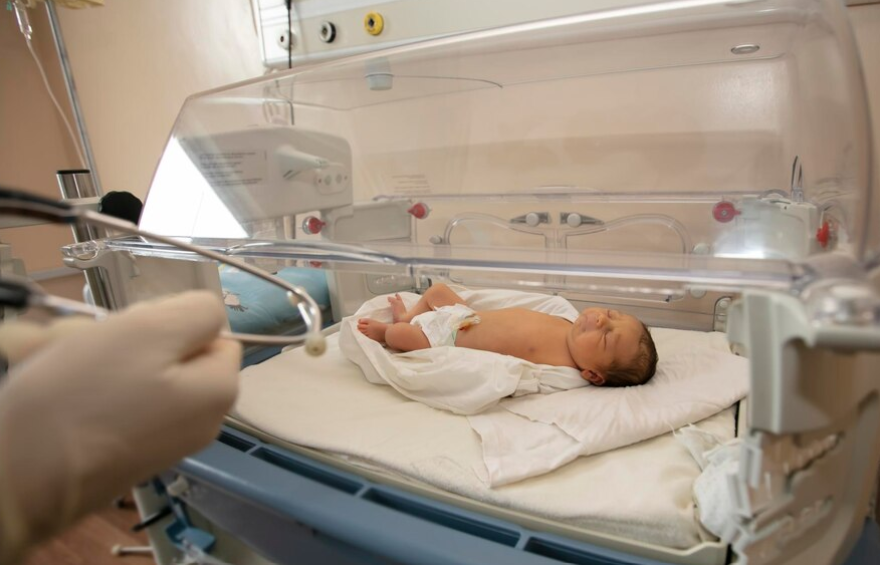Why Newborns Need Special Care
Newborns are delicate beings with unique needs, requiring special care and attention. Their immature immune systems, fragile bones, and difficulty in regulating body temperature make them highly susceptible to infections, injuries, and other health complications. Additionally, newborns undergo rapid growth and development phases that necessitate careful monitoring and appropriate stimulation. It’s crucial for parents to be vigilant about their baby’s health and seek medical advice whenever necessary to ensure proper growth and development.
Common Health Problems in Newborns
- Jaundice: A prevalent condition where a newborn’s liver cannot process bilirubin efficiently, leading to a yellowish tint in the skin and eyes.
- Colic: Characterized by excessive crying and fussiness, often due to digestive discomfort.
- Diaper Rash: Skin irritation caused by prolonged exposure to moisture and friction from diapers.
- Thrush: A fungal infection presenting as white patches in the baby’s mouth or a rash in the diaper area.
- Reflux: The backward flow of stomach contents into the esophagus, causing discomfort and sometimes vomiting.
- Respiratory Infections: Due to their underdeveloped immune systems, newborns are more prone to respiratory infections like colds or bronchiolitis.
- Skin Irritations: Conditions such as baby acne or eczema, often resulting from hormonal changes or exposure to irritants.
- Fever: A potentially serious condition requiring prompt medical attention, as it can indicate an underlying infection.
- Constipation: Persistent constipation or associated alarming symptoms should prompt a medical consultation.
Helpful Tips for New Parents
- Follow a Feeding Schedule: Newborns typically need to be breastfed every 2-3 hours or on demand. Establish a feeding routine, and if formula-feeding, follow your doctor’s guidance on quantity and frequency. Breastfeeding is recommended for the first six months.
- Practice Good Hygiene: To protect your newborn from infections, maintain strict hygiene practices. Wash your hands frequently and ensure anyone handling the baby does the same. Keep the baby’s environment clean and limit exposure to sick individuals.
- Keep Your Baby Warm: Newborns struggle to regulate their body temperature. Dress them in layers and maintain the room temperature between 68-72°F (20-22°C). Regularly check your baby’s warmth by feeling their back or tummy, and adjust clothing as needed.
- Ensure Safe Sleep: Always place your baby on their back to sleep, on a firm, flat surface free of loose blankets, toys, or pillows. This reduces the risk of sudden infant death syndrome (SIDS).
- Incorporate Tummy Time: Tummy time is crucial for your baby’s development, helping to strengthen neck and shoulder muscles and prevent flat spots on the head. Start with a few minutes daily, gradually increasing the duration as your baby grows stronger.
- Attend Regular Check-Ups: Regular pediatrician visits are essential to monitor your baby’s growth and development. These check-ups provide an opportunity to address any concerns and ensure your baby is on track.
- Monitor Bowel Movements: Keep an eye on your baby’s bowel movements. Significant changes in consistency or frequency, or signs of dehydration like decreased urine output or dry mouth, warrant a consultation with your pediatrician.
- Vaccinate on Schedule: Vaccinations are vital for protecting your newborn from various diseases. Stay informed about the vaccination schedule and ensure timely immunizations for your baby’s health and well-being.
- Be Alert for Signs of Jaundice: If your baby shows severe jaundice symptoms, such as extensive yellowing of the skin and eyes, poor feeding, or lethargy, seek medical attention promptly.
- Watch for Infections: Symptoms like fever, unusual rashes, breathing difficulties, or changes in behavior may indicate an infection. Consult your pediatrician if any concerning symptoms arise.
- Burp After Every Feed: Burping helps to release any air swallowed during feeding, reducing the chances of discomfort and spitting up.
Trust Savera Child Clinic for Expert Neonatal Care
Savera Child Clinic is a renowned neonatology clinic in Faridabad, known for its exceptional care for newborns and infants. The clinic’s dedicated team of highly skilled doctors and nurses, led by the esteemed Dr. Supriya Rastogi, ensures that every baby receives top-notch attention and treatment. With advanced medical equipment and state-of-the-art facilities, Savera Child Clinic is committed to delivering superior neonatal care, focusing on the well-being and development of each precious life. Parents can rest assured that their newborns are in the best hands, receiving the highest standard of care at Savera Child Clinic.

